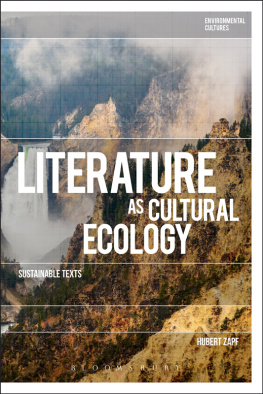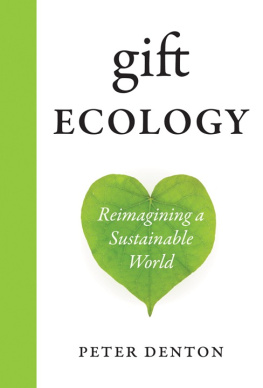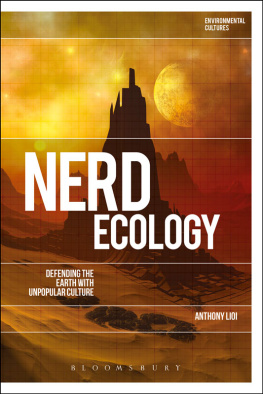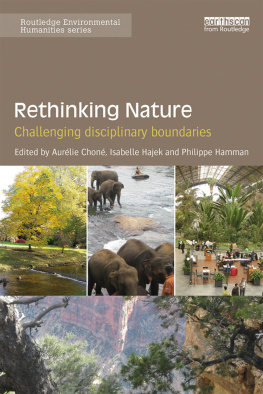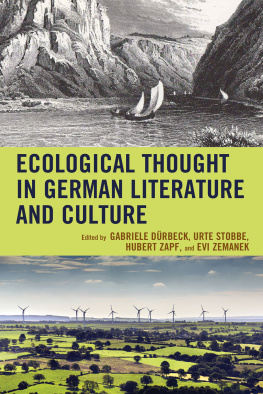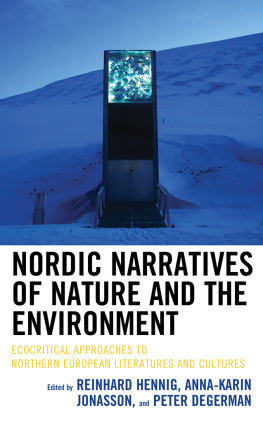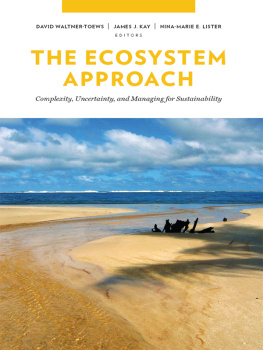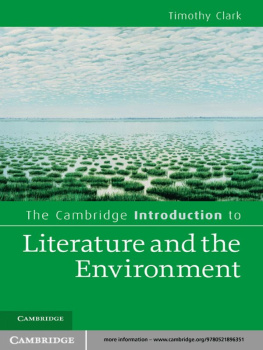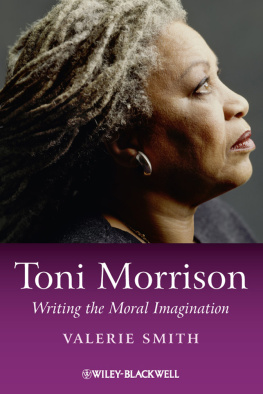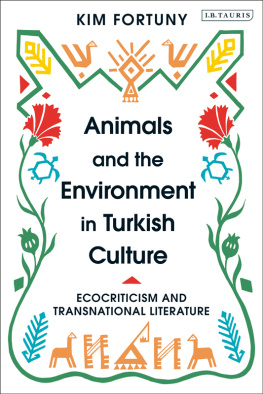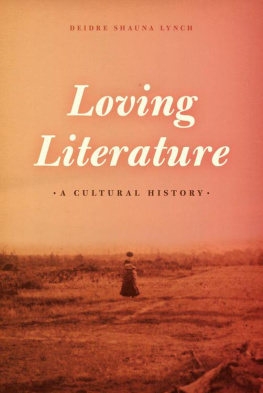Literature as Cultural Ecology
Environmental Cultures Series
Series editors:
Greg Garrard, University of British Columbia, Canada
Richard Kerridge, Bath Spa University, UK
Editorial Board:
Franca Bellarsi, Universit Libre de Bruxelles, Belgium
Mandy Bloomfield, Plymouth University, UK
Lily Chen, Shanghai Normal University, China
Christa Grewe-Volpe, University of Mannheim, Germany
Stephanie LeMenager, University of Oregon, USA
Timothy Morton, Rice University, USA
Pablo Mukherjee, University of Warwick, UK
Bloomsburys Environmental Cultures series makes available to students and scholars at all levels the latest cutting-edge research on the diverse ways in which culture has responded to the age of environmental crisis. Publishing ambitious and innovative literary ecocriticism that crosses disciplines, national boundaries, and media, books in the series explore and test the challenges of ecocriticism to conventional forms of cultural study.
Titles available
Ecocriticism and Italy, Serenella Iovino
Forthcoming titles
Bodies of Water, Astrida Neimanis
Cities and Wetlands, Rod Giblett
Climate Crisis and the 21st-Century British Novel, Astrid Bracke
Nerd Ecology, Anthony Lioi
The New Nature Writing, Jos Smith
The New Poetics of Climate Change, Matthew Griffiths
Literature as Cultural Ecology
Sustainable Texts
Hubert Zapf
Bloomsbury Academic
An imprint of Bloomsbury Publishing Plc

I would like to thank the following persons and institutions for helping me develop the ideas that have gone into the present book. These are, first of all, the members of the cultural ecology research group in American Literature at the University of Augsburg, notably Timo Mller, Michael Sauter, Christina Caupert, Heike Schwarz, Johanna Hartmann, Julia Fendt, Christopher Schliephake, Katharina Donn, Aleksandra Cierpinska, and Erik Redling (meanwhile University of Halle), all of whom actively contributed to the emerging paradigm of cultural ecology in their own ways both by discussing recent developments of ecocritical theory in research colloquia and by producing significant publications in the field themselves. My special thanks go to Serenella Iovino from the University of Turin, Italy, who is not only a dear personal friend but has been a Humboldt fellow and regular guest at the University of Augsburg, where the dialogue between cultural ecology and material ecocriticism formed a central part of our shared intellectual explorations. Serenellas extraordinary knowledgeability and enthusiasm have helped to turn the Oberseminar Amerikanistik into a forum of international exchange on current issues of the environmental humanities, in which her husband Maurizio Valsania, a renowned scholar himself in the history of political ideas, also most fruitfully participated.
Important and reliable partners in a continuing interdisciplinary exchange of ideas about the function of literature in culture and society are my Augsburg colleagues Martin Middeke, expert in poststructuralist theory; Gnter Butzer, scholar of international literatures; Mathias Mayer, director of the graduate program Ethics of Textual Cultures; Sabine Doering-Manteuffel, ethnologist and current president of the university, who is genuinely interested in and supportive of research projects in ecology and the humanities; Jens Sntgen, director of the Environmental Science Center at Augsburg University, in which the natural sciences cooperate with the environmental humanities; and Heide Ziegler, old-time friend, Americanist colleague, and member of the universitys Advisory Board.
My sincere thanks likewise go to many other colleagues and friends outside of Augsburg, with whom I have kept an ongoing dialogue and who regularly visited Augsburg and in turn invited me to lectures, conferences, publications, and occasions for private conversations, thereby helping me differentiate and theoretically substantiate my attempts to formulate a theory of literature as cultural ecology among them Rolf Breuer, my former academic advisor from the University of Paderborn, who has set high intellectual standards with his keen interest in the relationship between theory and literature that has kept to motivate my own scholarly efforts; Hilary Fraser, friend from early days of academic life and distinguished Victorian scholar at Birkbeck College, whose attention to the culture-critical and life-transforming functions of art have more things in common with cultural ecology than it may seem at first sight; Siri Hustvedt, American writer and public intellectual, whose warm-hearted transatlantic friendship and intense interest in the special capacity of literature as an interdisciplinary form of knowledge of life that is on a par with scientific forms of knowledge has been an invaluable inspiration for me; Alfred Hornung and Mita Banerjee from the University of Mainz, who invited me to cooperate in their interdisciplinary graduate research center on Life Sciences and Life Writing at the interface of literature and medicine; Wendy Wheeler, Kate Rigby, and Louise Westling, who have collaborated on various projects and have inspired me with their biosemiotic respectively eco-phenomenological ideas; Axel Goodbody, who has made me aware of the manifold interconnections between Anglo-American and German ecocritical thought; Evi Zemanek, Gabriele Drbeck, and Urte Stobbe, who let me participate in their research network on German ecocriticism and ecological literature; Kaspar Spinner and Berbeli Wanning, who have been exploring the implications of cultural ecology for the teaching of literature; Sylvia Mayer and Catrin Gersdorf, who helped establish ecocriticism in Germany and Europe and organized the foundational conference of EASLCE in 2004, which initiated a constantly growing network of research contacts in the field.
I would furthermore like to mention as important figures of intellectual exchange Gabriele Rippl with her interest in sustainability and gender diversity; Hans-Ulrich Seeber, specialist in nature poetry and the process of modernization; the Vermont friends and colleagues Tony Magistrale, international Poe expert and frequent partner in co-teaching, Dennis Mahoney, scholar of German romanticism and especially of Novalis, and Marc Estrin, novelist and musician; Georg Stark, computer scientist with a passion for ecology, art, and literatureall of whom representing personal voices, academic cultures, and interdisciplinary perspectives that have enriched my ideas on cultural ecology.
My special thanks go to the editors Greg Garrard and Richard Kerridge for accepting the book for publication in this exciting new book series on Environmental Cultures. They have been very helpful and cooperative in the editorial process. I would also like to thank the two external readers whose reports have given me useful feedback on the manuscript. Thanks also go to David Avital and Mark Richardson from Bloomsbury Academic and Rajakumari Ganessin from Integra for their constructive and competent preparation of the book for print.
Last but not least, I would like to thank my children Jakob, Nora, and Ruth-Maria for their unceasing interest in the creative exchange of ideas between their fields of expertisefilm, poetry, and operaand my own, which has been a constant source of pleasure and inspiration. My deep-felt thanks go to my wife Jacoba, whose patience with my obsessive pursuit of projects such as this goes along with a supportive companionship, shared curiosity, and inexhaustible intellectual energy, making our conversations an ongoing adventure of mutual truth-seeking and discovery.
Next page
